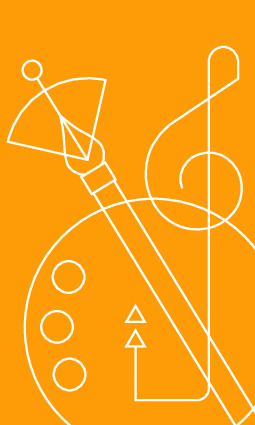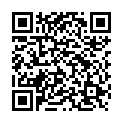|
|
|
| Module code: MAKM-319 |
|
|
4SU (4 hours per week) |
|
6 |
| Semester: 3 |
| Mandatory course: no |
Language of instruction:
German |
Assessment:
Written composition, presentation
[updated 24.09.2020]
|
Exam recurrence:
The information regarding exam recurrence is found within the exam policy of the study programme (ASPO).
|
MAKM-319 (P430-0046) Cultural Management, Master, ASPO 01.04.2020
, semester 3, optional course
|
60 class hours (= 45 clock hours) over a 15-week period.
The total student study time is 180 hours (equivalent to 6 ECTS credits).
There are therefore 135 hours available for class preparation and follow-up work and exam preparation.
|
Recommended prerequisites (modules):
None.
|
Recommended as prerequisite for:
|
Module coordinator:
Prof. Dr. Nicole Schwarz |
Lecturer:
Dozierende des Studiengangs
[updated 23.05.2025]
|
Learning outcomes:
After successfully completing this module, students will:
_ be able to describe the conflicts between culture/pop culture and economy/creative economy, as well as the places where they intersect. _
be able to define pop culture as an engine of the creative economy
_ be able to define the status quo and the potential of the creative industries in Germany and Europe
_ be familiar with the entire spectrum of the creative industry
_ be able to define the creative economy as a meta-trend
_ be able to give practice-relevant insights into and overviews of possible fields of work in the pop culture and creative industries.
_ be able to teach the basics of practical work in the pop culture and creative industries, as well as the corresponding terminology.
_ be able to reflect theoretically on fields of work in the pop culture and creative industries.
_ be able to place the topic of pop culture and the creative economy in a higher cultural, legal and economic context.
_ be able to orient themselves in the professional field and examine and reflect on their own career aspirations regarding pop culture in the creative industry.
_ be able to leverage and expand the networks offered by PopRat, Rockhal and IMMF in the field of pop and creative industries.
Students will develop, expand and deepen their basic knowledge about:
_ the status quo of the creative industries in Germany, their range and the role of pop culture in the creative industries.
_ the professional field of pop culture within the creative economy.
_ the conflicts between creative industries and publicly-funded culture.
_ actual and possible players from pop culture creative economy in SaarLorLux.
_ specific occupational fields from the pop culture creative economy.
[updated 24.09.2020]
|
Module content:
Possible topics:
- Occupational fields in the creative industry with pop relevance: creativity, communication and cultural organization
- Pop and culture management/management in the creative industries
- Pop culture as the engine of the creative economy
- Journalism, advertising and PR
- Business start-up
- Promoting pop culture and culture
- Creative industries and public sector culture
- Promoting the creative industries through public funding based on the example of the Creative Centre Saar
[updated 24.09.2020]
|
Teaching methods/Media:
_ Seminar
_ Case studies with players from pop culture and creative industries
_ Group work
_ Discussions with fellow students and third parties
_ Presentations and preparation of documentation/papers
[updated 24.09.2020]
|
Recommended or required reading:
Literature will be compiled according to the respective topic. In-depth literature research is required and is an integral part of the course.
Literature examples:
_ Rohrberg, Andrea/Schug, Alexander: Die Ideenmacher _ Lustvolles Gründen in der Kultur- und Kreativwirtschaft (transcript Praxis Guide, 2010)
_ Reich, Matthias Peter: Kultur- und Kreativwirtschaft in Deutschland: Hype oder Zukunftschance der Stadtentwicklung? (Springer VS, 2013)
_ Breitenborn, Uwe/Düllo, Thomas/Birke, Sören (Hrsg.): Gravitationsfeld Pop. Was kann Pop? Was will Popkulturwirtschaft? Konstellationen in Berlin und anderswo. (transcript, 2014)
_ Mankse, Alexandra: Kapitalistische Geister in der Kultur- und Kreativwirtschaft: Kreative zwischen wirtschaftlichem Zwang und künstlerischem Drank (Gesellschaft der Unterschiede) (transcript, 2015)
_ Von Beyme, Klaus: Kulturpolitik in Deutschland: Von der Staatsförderung zur Kreativwirtschaft (Springer VS, 2012)
_ Seliger, Berthold: Das Geschäft mit der Musik. Ein Insiderbericht (Edition Tiamat, 2013)
_ Renner, Tim: Kinder, der Tod ist gar nicht so schlimm! Über die Zukunft der Musik- und Medienindustrie (FUEGO, 2004)
_ Renner, Tim/Wächter, Sarah: Wir hatten Sex in den Trümmern und träumten. Die Wahrheit über die Popindustrie (Berlin Verlag, 2013)
_ Fuchs, Tanja: Kunst in Zeiten der Kreativwirtschaft: Zwischen Geniemythos und Unternehmertum (Jonas Verlag, 2015)
_ Berg, Magnus/Öst, Fredrik: Make Enemies & Gain Fans: The Snask way of becoming a successful creative entrepreneur (August Dresbach Verlag, 2015)
_ Kuhne, Tony: Selbständigkeit in der Kreativwirtschaft. Erläuterung des rechtlichen Rahmens als Grundlage einer Unternehmung (GRIN Verlag, 2016)
_ Wentz, Jill: Förderung der Kreativwirtschaft (AV Akademikerverlag, 2014)
_ Schildhauer, Thomas: Erfolgsfaktor Musikmarketing im Social Web (Kohlhammer Edition Kreativwirtschaft, 2012)
[updated 24.09.2020]
|


